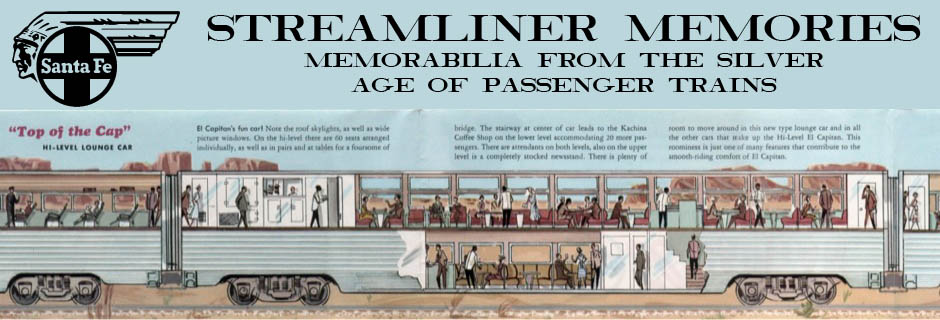In 1967, rival railroads Seaboard Air Line and Atlantic Coast Line merged to become the Seaboard Coast Line. This merger was justified on the grounds that it would reduce operating costs by allowing the railroads to shut down duplicate routes and facilities. However, it also reduced competition. Just as the Great Northern-Northern Pacific merger led to an eventual reduction in the number of major railroads in the West to just two, the Seaboard Coast Line merger did the same for railroads in the South.
Click image to download a PDF of this on-board letterhead.
Historically, Seaboard had been a weaker railroad than Atlantic, and by 1960 it still had fewer route miles: about 4,135 compared with ACL’s 5,570. ACL also controlled the Louisville & Nashville’s 6,000 route miles as well as a number of other smaller railroads. But “Seaboard” ended up dominating the merged railroad’s name.
Click image to download a PDF of this on-board envelope.
By 1967, passenger business was thinning rapidly. But Seaboard still used a colorful image of a train in Florida on the letterhead for its on-board stationery, which no doubt was used on both the former SAL Silver Meteor and the former ACL Champion, both of which survived until Amtrak. Amtrak continued to operate them until 1979, when a Jimmy Carter budget-cutting measure forced it to discontinue the Champion despite excellent patronage.


